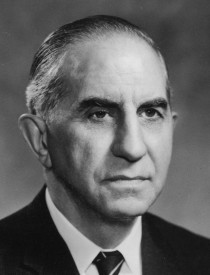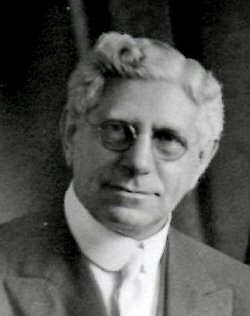As a Calvinist, there have been times when I have been attracted to Molinism and sought to explore this alternative model of divine providence. For those who do not know, Molinism is named after a Spanish Jesuit theologian, Luis de Molina, who was a counter-Reformer. His view is sometimes thought of as being somewhere between Calvinism and Arminianism.
Molinism teaches that God sovereignly controls everything that comes to pass (seemingly agreeing with Calvinism), but also holding that human beings have libertarian free will (seemingly agreeing with Arminianism). How can both ideas be reconciled? Molina accomplishes this by positing that God possesses scientia media or middle knowledge and that God is able to utilise this type of divine foreknowledge to have divine providential control over human free will choices (free in the libertarian sense).
It works like this (according to Molinism).
God has three logical "moments" of divine foreknowledge.
First, God has what is called natural knowledge. Natural knowledge is God's knowledge, in himself, of himself, and all logical possibilities that God could bring about. Natural knowledge contains everything that could happen.
Third, God has what is called free knowledge. Free knowledge is God's knowledge, after the divine decree of everything that will occur in the world God has decided to create. Free knowledge contains everything that will happen.
Divine natural knowledge and free knowledge are accepted by all classical theists, including in Reformed theology and these are not controversial.
Molina's unique idea was to suggest that between the pre-decree natural knowledge and the post-decree free knowledge of God, there is something called middle knowledge, which is before the decree and prevolitional, i.e. not something that originates in God's will, but precedes it. Middle knowledge contains God knowledge of everything beings with libertarian free will would do in any possible circumstances. The best way to think of it is as a subset of God's natural knowledge of all possibilities. Middle knowledge are all the possibilities that could happen if human beings have libertarian free will. Middle knowledge is often summarised as containing everything that would happen.
Another way these three moments are sometimes described is that natural knowledge comprehends all possible worlds, middle knowledge (with libertarian free will granted) comprehends all feasible worlds, and free knowledge comprehends the one actual world God decided to create.
This is a summary of what Molinism means. We will now outline the main reasons why Molinism is not a feasible view (pardon the pun) for the Bible-believing Christian in my view.
In summary, the problems with Molinism are the following:
1. Molinism denies the idea of an Exhaustive and Unconditional Divine Decree.
2. Molinism teaches a form of Creaturely Independence which contradicts Divine Aseity and God's Absolute Sovereignty.
3. Molinism relies on libertarian free will. Indeed, Molinism was created by Molina in an attempt to show that God's sovereignty could be harmonised with libertarian free will. Yet the Bible teaches that even human free choices are under the control of God's sovereign choice.
4. Molinism smuggles in a kind of semi-Pelagian anthropolgy whereby sinners are able to do good, including saving good, in response to God's grace merely if put in the right set of circumstances.
5. Molinism undermines divine simplicity and immutability. It makes God's knowledge partly dependent on his creation and makes his decree reactive rather than eternal and simple.
6. Molinism weakens God's providence and efficacious grace. God is restricted and can only select from feasible worlds one which matches his desires as closely as possible rather than the biblical view that God's sovereign decree reflects God's own desires perfectly and the world perfectly matches God's desires and wishes.
7. Election in Molinism can only be a kind of conditional election, in that God chooses those he knows will believe when put in certain circumstances. This is not the unconditional election taught in the Scriptures.
8. Likewise, Molinism usually teaches that God choose to actualise the world in which the maximum number of people are saved, but that there were feasible worlds in which any other people would be saved, though no feasible worlds in which everyone is saved. Thus, person A's election in the real world does not rest on God's sovereign choice primarily, but on the fact that A was part of the maximum number of saved people in this world. On the other hand person B, might have been saved in another world, but he is lost in the real world merely because the world in which he would have been saved did not deliver as many saved people overall. This seems ridiculous compared with the Calvinist view that in the real world God saved everyone for whom he has saving love and desires to actually save.
9. Molinism rests on the concept of middle knowledge, which is not found in the Scriptures. It is merely a clever philosophical speculation. Calvinism does a better job of reconciling divine sovereignty, which is absolute, and human free will and responsibility, which is derived from God's decree and is compatible with God's determining all things.
10. The grounding objection has never been satisfactorily answered by Molinism. The grounding objection states that the central claim of Molinism is either completely incoherent or impossible. There is nothing in Molinism that explains (or grounds) why God possesses such knowledge of what people would freely choose to do in any circumstance in which they were placed.
11. Closely linked to this, Molinists cannot explain where middle knowledge comes from as it comes from creatures with free will before God has decreed to create such creatures. Middle knowledge comes across as a series of brute facts about the universe with no explanation of why such facts or truths exist as they do not come from God's will, not from the creatures.
We will explore these eleven objections to Molinism, from a Reformed theological viewpoint, in Part 2.



